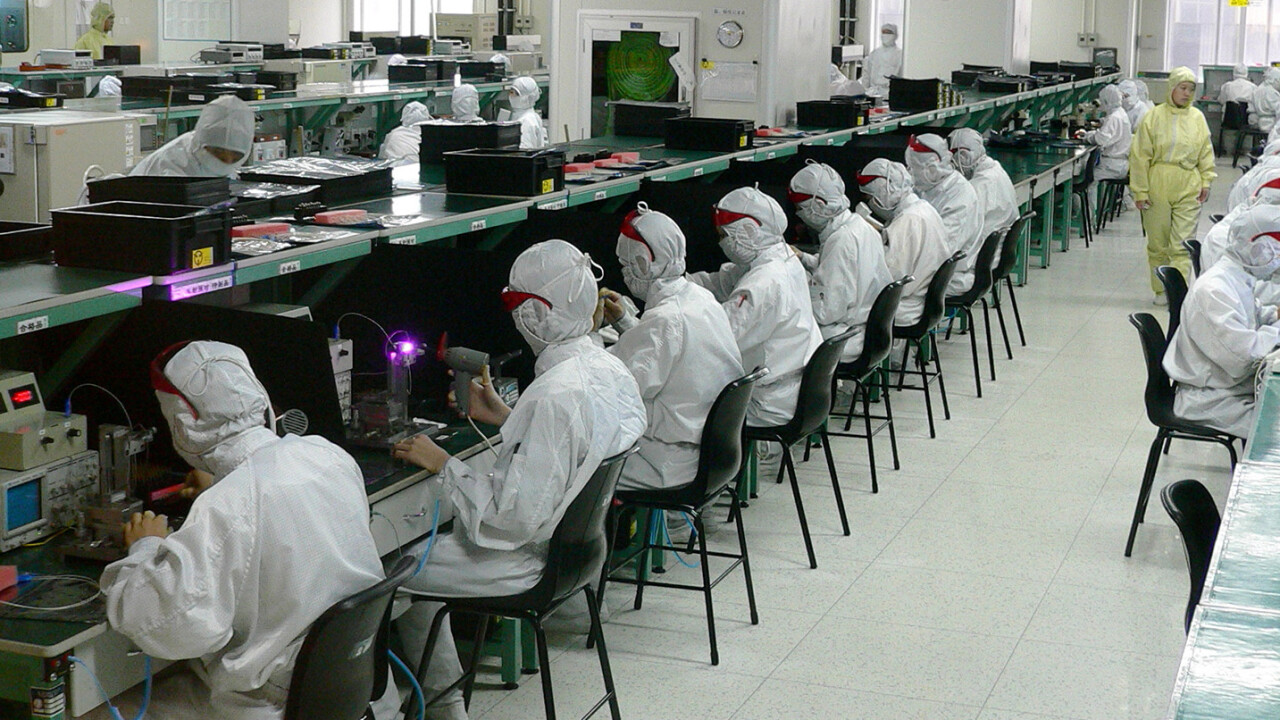
Toiling 12 hours a day on an Apple assembly line is a terrible way to spend a summer break. That didn’t deter Dejian Zeng. Zeng, an NYU grad student, spent six weeks last year detailing the life of a Chinese worker at an iPhone factory, Pegatron, near Shanghai.
It’s not all bad — Chinese factories are working hard to keep out underage workers, for example. Apple also visits the factory regularly, especially during trial productions. Apple told Business Insider Pegatron has a “99 percent compliance with workers working under a 60-hour work week, and Pegatron workers who make Apple products work for 43 hours per week on average.”
It’s progress, and we’re light years ahead of where Chinese manufacturing used to be. At least in some factories. So again, it’s not all bad.
But it isn’t good, either.
Going to work at 7:30 each night, Zeng put in a 12 hour shift, including meals and breaks. His job was monotonous. For factory workers, efficiency is key. Each worker repeats a single task each day before the device gets passed down the assembly line. For Zeng, this might mean inserting a single screw into the back of an iPhone for 12 hours.

Trial productions are even worse. During a trial production you might only produce five phones a day. Workers sit for hours waiting on the next phone. They often aren’t allowed to speak or move from their spot on the assembly line, even for bathroom breaks. You assemble one phone, Zeng said, and then you sit there quietly for two hours waiting for another. He likened the process to “torture,” and said it was hard not to fall asleep. If workers gave into the temptation, they were often yelled at our had their chairs removed — forcing them to stand for the rest of the shift.
Apple’s trial productions also brought increased security. The factory increased sensitivity on the metal detectors during these periods. Security even forced women to change if the underwire in their bra set off the increasingly sensitive scanners. Objects containing metal — lighters were a common one — or cell phones were confiscated upon entry.
Once the shift was over, workers returned to a dorm to sleep. Zeng shared his dorm with seven other workers. If he was lucky, Zeng detailed, there might be hot water for a shower once he returned. Some days had no hot water, others had no water at all.
Meals weren’t bad, but each cost 5 to 8 yuan ($0.72 to $1.16). For those needing a break from the dorm, they could snag a meal outside for about 20 yuan ($2.90). While cheap by US standards, these additional costs for impoverished workers ate away at an already low salary. When coupled with additional expenses, like in-dorm internet, or the physical exam required to start working there, these expenses mounted quickly.
As for salary, Zeng earned “about 3,100 yuan” ($450) his first month. This, mind you, was the base salary of 2320 yuan ($336), coupled with overtime pay. It’s low, but above China’s federal minimum wage.
All told, Zeng earned about $665 during his six weeks at Pegatron.
You can read the full interview at Business Insider.
Get the TNW newsletter
Get the most important tech news in your inbox each week.





